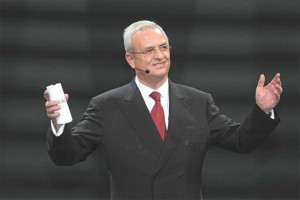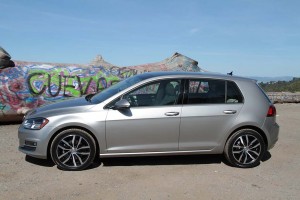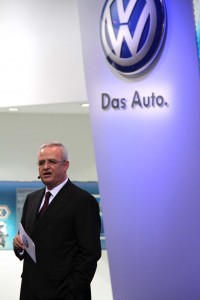Former Volkswagen CEO Martin Winterkorn testified that he had no advance warning of the company’s diesel emissions cheating despite some concerns he intentionally misled VW investors before the scandal broke wide open in September 2015.
Winterkorn has been under a cloud of suspicion in recent months as prosecutors in both Germany and the U.S. have dug ever deeper into VW’s rigging of diesel emissions tests. As part of a $4.3 billion settlement between the company and the U.S. Justice Department announced last week, six VW employees were indicted for their alleged role in coming up with the so-called “defeat devices” used in the automaker’s 2.0- and 3.0-liter engines. Now, the focus turns to whether top management tried to conceal what they knew.
“As CEO I took political responsibility,” the 69-year-old Winterkorn said during a German parliamentary inquiry on Thursday, adding that, “this step was the most difficult of my life.”
(For the latest on the VW criminal settlement, Click Here.)
While not admitting knowledge of the scandal until VW was approached by the U.S. Environmental Protection Agency, Winterkorn stepped down as CEO several weeks after the EPA announced its findings in September 2015.
Top executives of the automaker have long insisted that they knew nothing ahead of that move, arguing that the diesel scandal was the work of a “handful” of lower-level engineers. That claim was smashed by the Justice Department as part of its criminal case, prosecutors declaring that one of those indicted oversaw more than 10,000 VW employees.
How far up the corporate ladder the diesel rigging went remains a matter of debate, and U.S. officials said they may yet file further criminal charges. In turn, VW has reportedly warned many employees who could be targets not to travel to the U.S.
(For more on that development, Click Here.)
Part of the speculation centers around VW’s strong, top-down management style. Some observers believe that a can’t-fail environment encouraged employees to come up with solutions at all costs, even if it meant breaking the law. VW’s diesel targets were considered particularly challenging because the automaker was demanding the development of engines that were not only quick and fuel-efficient but which also met tough emissions scandals.
In the end, the solution proved to be software that could sense when one of the two turbodiesel engine families was being tested, altering control settings to reduce emissions. In real world operations, those turbodiesels would produce up to 40 times more smog-causing oxides of nitrogen.
As part of the Justice Department settlement, VW will come under court-ordered monitoring and has agreed to make systemic changes to prevent a repeat of the cheating. Simply creating the environment in which such rigging could occur is one matter, but the question before lawmakers and prosecutors is whether top executives knew about the cheating.
The current probe, led by prosecutors in Braunschweig, Germany, is focused on whether top executives, led by Winterkorn, withheld information from shareholders, a violation of security laws. VW’s stock price crashed after the diesel scandal erupted and has yet to fully recover.
In his parliamentary testimony, Winterkorn described himself as a “trained engineer,” whose “trademark” was “a love of detail.”
Flanked by lawyers, and seemingly careful not to provide information that could be used by prosecutors, Winterkorn did state that it was “certainly not before September 2015” when he learned about the rigging. He added that it was “not comprehensible why I was not informed early and clearly about the (emissions) measurement problems.” Winterkorn added that he has repeatedly asked himself “if I missed signals or misread them.”
Winterkorn’s testimony didn’t convince many German lawmakers, according to the Reuters news service.
It quoted Green Party parliamentarian Oliver Krischer as suggesting, “this paints either a picture of a boss who didn’t know what was going on in his company or, alternatively, Prof. Winterkorn isn’t presenting things as they really were and is downplaying his role in this whole emissions scandal.”
(GM Settles with US SEC over ignition switch scandal. Click Here for the latest on that story.)



